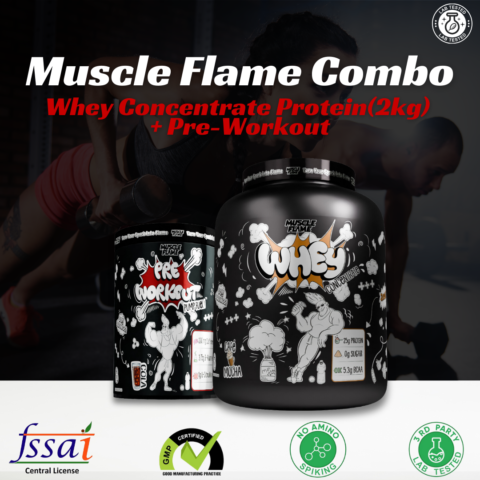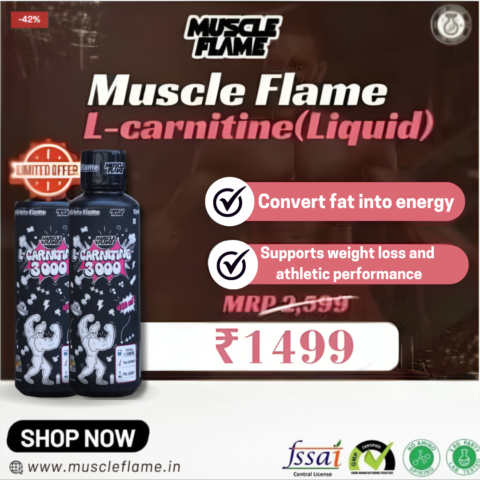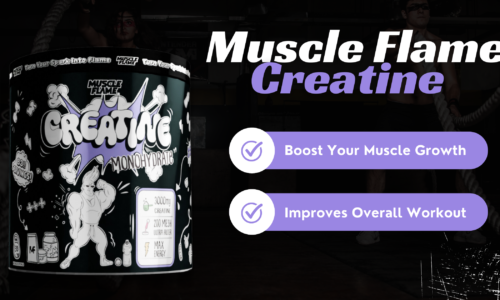
Exploring How Supplements Help in Athletic Performance and Recovery
In the world of athletics, maximizing performance and ensuring rapid recovery are essential for success. While a well-rounded diet and rigorous training are foundational, supplements can provide the extra edge needed to enhance performance and accelerate recovery. This blog delves into the role of supplements in athletics, exploring their benefits, types, and effective usage strategies.
1. The Role of Supplements in Athletic Performance
Supplements can significantly impact athletic performance by addressing specific nutritional needs and enhancing physical capabilities. Here are some key ways they contribute:
- Improved Energy Levels: Supplements like caffeine and beta-alanine can boost energy levels, enhancing endurance and delaying fatigue. Caffeine stimulates the central nervous system, increasing alertness and reducing perceived effort during exercise. Beta-alanine helps buffer acid in muscles, reducing muscle fatigue and improving exercise performance.
- Enhanced Muscle Growth and Strength: Protein supplements, such as whey and casein, provide essential amino acids necessary for muscle repair and growth. Creatine is another popular supplement that enhances strength and power by increasing the availability of ATP (adenosine triphosphate), the primary energy carrier in cells.
- Increased Exercise Capacity: Branched-Chain Amino Acids (BCAAs), including leucine, isoleucine, and valine, can improve exercise capacity and reduce muscle soreness. BCAAs play a role in muscle protein synthesis and can help maintain muscle mass during intense training periods.
2. The Role of Supplements in Recovery
Effective recovery is crucial for athletes to maintain peak performance and prevent overtraining. Supplements can aid in recovery by:
- Reducing Muscle Soreness: Omega-3 fatty acids, found in fish oil supplements, have anti-inflammatory properties that can reduce muscle soreness and improve recovery time. Curcumin, derived from turmeric, also has potent anti-inflammatory effects that support recovery.
- Replenishing Nutrients: After intense exercise, it is important to replenish lost nutrients. Electrolyte supplements containing sodium, potassium, and magnesium help restore electrolyte balance, preventing dehydration and cramping.
- Supporting Immune Function: Intense training can suppress immune function, increasing susceptibility to illness. Supplements like vitamin C, vitamin D, and zinc play a crucial role in supporting immune health and reducing the risk of infections.
3. Types of Supplements and Their Benefits
Understanding the different types of supplements can help athletes choose the ones that best meet their needs:
- Protein Supplements: Whey protein is quickly absorbed, making it ideal for post-workout recovery, while casein protein provides a slow and steady release of amino acids, beneficial for overnight recovery.
- Creatine: Known for its role in enhancing strength and power, creatine is effective for high-intensity training and explosive movements.
- BCAAs: These essential amino acids support muscle growth, reduce exercise-induced fatigue, and promote quicker recovery.
- Omega-3 Fatty Acids: Found in fish oil, these supplements help reduce inflammation and muscle soreness.
- Vitamins and Minerals: Essential for overall health, vitamins like C and D and minerals such as zinc play critical roles in immune support and recovery.
4. Effective Usage and Considerations
To maximize the benefits of supplements, athletes should consider the following:
- Consultation with Healthcare Professionals: Before starting any supplement regimen, it is advisable to consult with a healthcare provider or a sports nutritionist to ensure the supplements are appropriate for individual health needs and goals.
- Quality and Dosage: Choose high-quality supplements from reputable brands. Adhere to recommended dosages to avoid potential side effects and interactions with other medications.
- Balanced Diet: Supplements should complement, not replace, a well-balanced diet. Whole foods provide essential nutrients that supplements cannot fully replicate.
Summary
Supplements play a vital role in enhancing athletic performance and aiding recovery by improving energy levels, boosting muscle growth, and supporting efficient recovery. By understanding the types of supplements available and their specific benefits, athletes can make informed choices to support their training and recovery goals.
FAQs
1. What are the most effective supplements for improving athletic performance?
Commonly effective supplements include protein powders (whey, casein), creatine, beta-alanine, and BCAAs. These supplements help enhance strength, endurance, and overall performance.
2. How do supplements aid in muscle recovery?
Supplements such as omega-3 fatty acids, protein powders, and electrolyte replacements help reduce inflammation, replenish nutrients, and support muscle repair, leading to quicker recovery.
3. Are there any risks associated with taking supplements?
While generally safe, excessive use of supplements or taking them without proper guidance can lead to potential risks, including digestive issues and nutrient imbalances. Always consult a healthcare professional before starting any supplement regimen.
4. Can supplements replace a healthy diet for athletes?
No, supplements should complement a balanced diet rather than replace it. Whole foods provide a wide range of nutrients essential for overall health and performance that supplements alone cannot offer.
5. How can I choose the right supplements for my needs?
Consulting with a healthcare provider or a sports nutritionist can help tailor supplement choices to your specific health goals, training demands, and individual needs.
Conclusion
Supplements can provide a significant boost to athletic performance and recovery when used correctly. By enhancing energy, supporting muscle growth, and aiding in recovery, supplements can help athletes achieve their best results. However, they should be used as part of a comprehensive approach that includes a balanced diet, proper training, and adequate rest. Understanding how different supplements work and consulting with professionals can ensure that they are used effectively to support athletic goals and overall health.
















